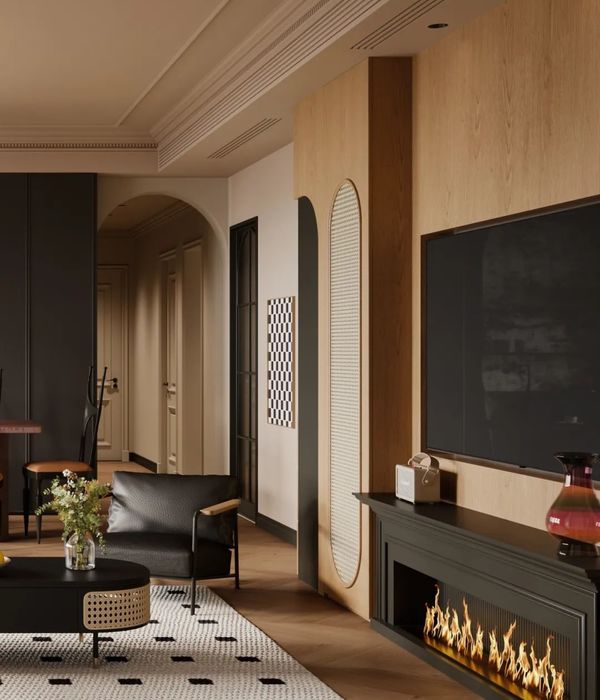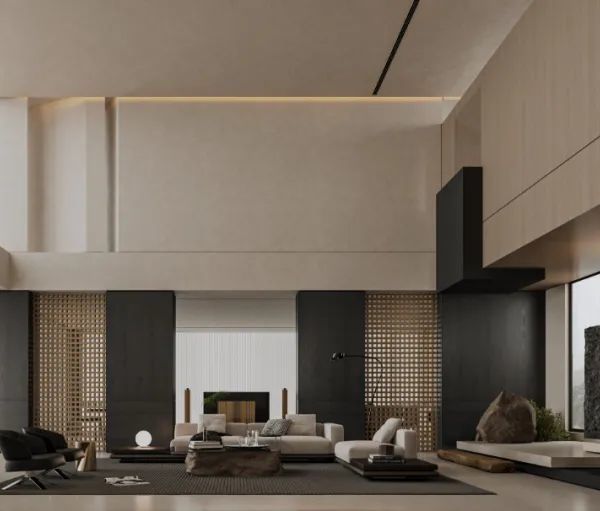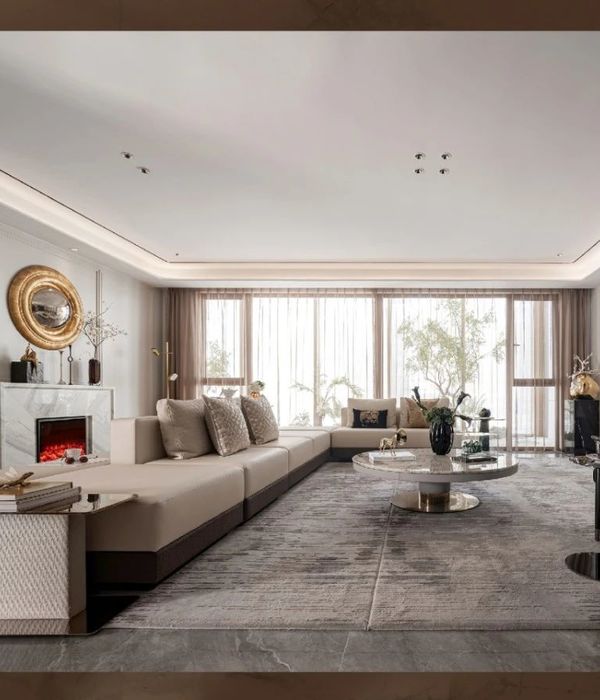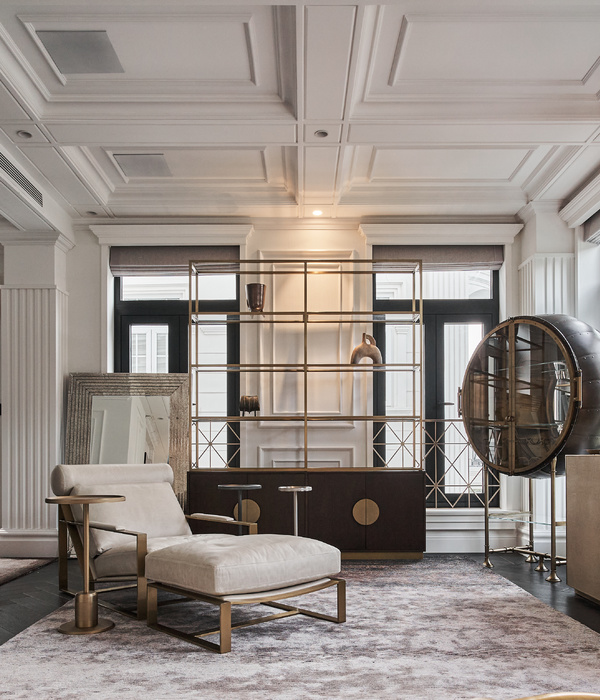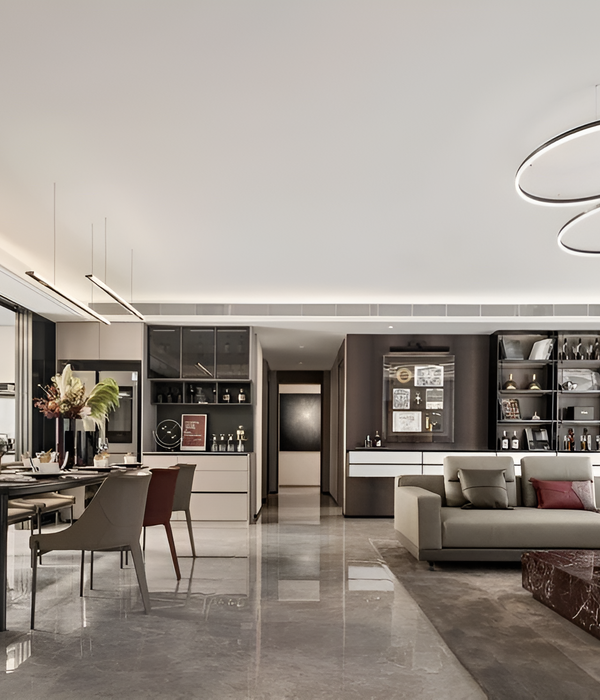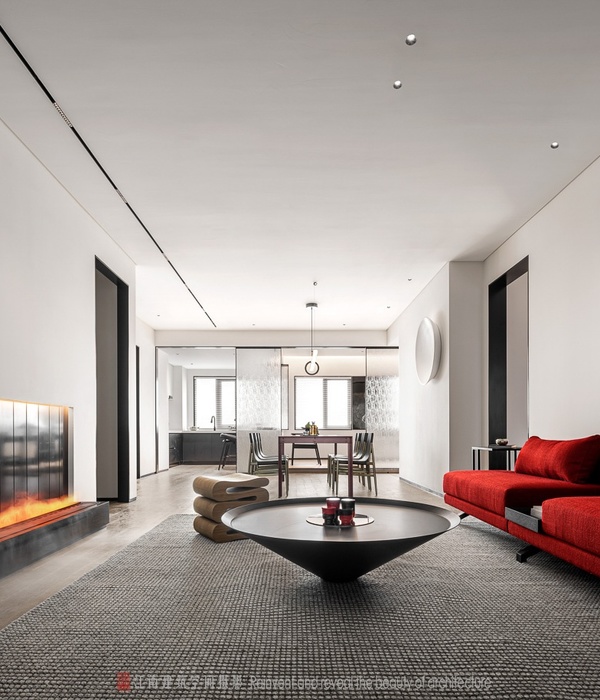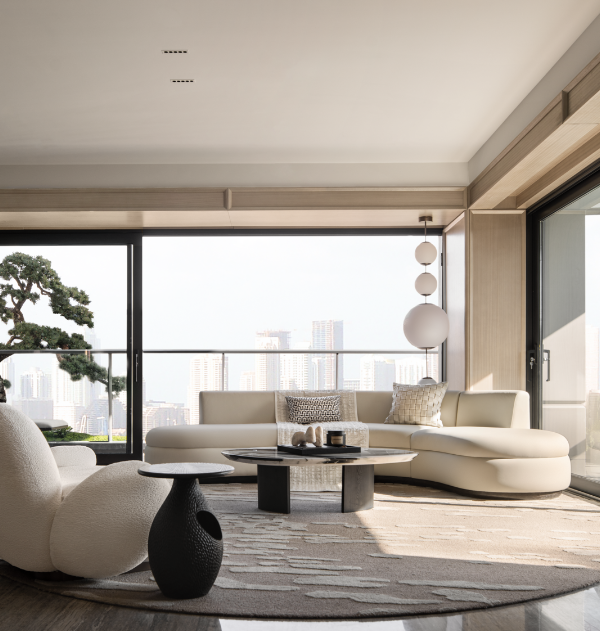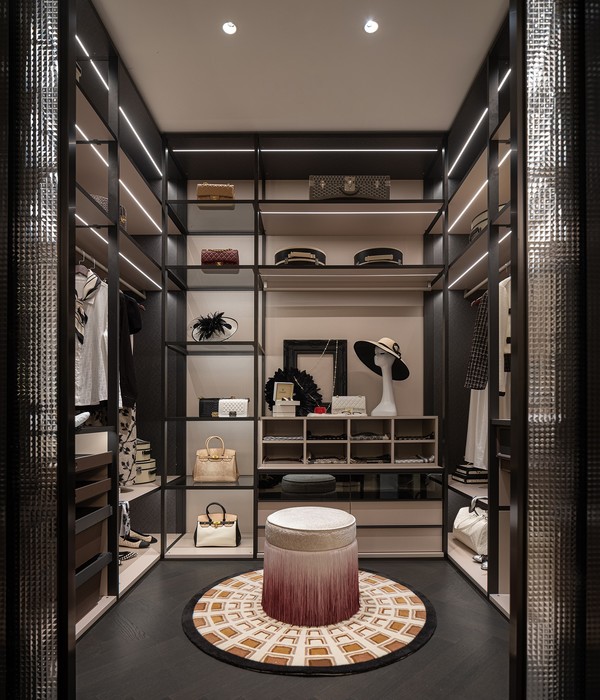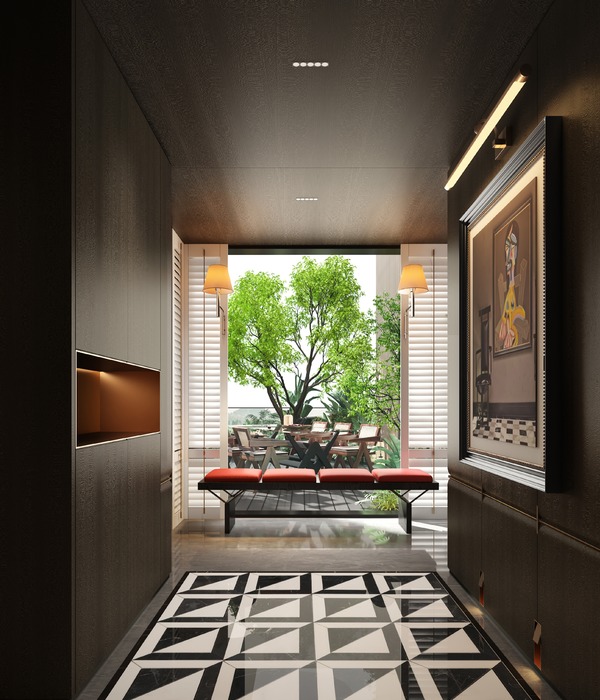来自Hello Wood
Appreciation towards Hello Wood for providing the following description:
在今年的Hello Wood国际暑期大学,学生们共同建造了七个现代化的小木屋。该项目是为期一周的Cabin Fever计划中的一部分,参与者们均得到了国际建筑师的专业指导与协作。在未来,这些可移动、可居住的独特小屋或将成为精品民宿的原型。
At this year’s Hello Wood International Summer University and Festival students got the chance to build seven contemporary cabins. As part of the week-long Cabin Fever programme, participants were mentored by international architects. In the future, these moveable, liveable and unique wooden cabins could even become prototypes for boutique accommodation in popular weekend destinations.
▼项目概览,overview
1.
木屋俱乐部设计者:Hello Wood
Grand Cabin Club by Hello Wood团队负责人|Team leaders: Dávid Ráday, András Huszár, Nóra Fekete, Ádám Bajtai
团队成员|Team: Martin Varvas, Ogulcan Aksoy, Simona Rusnačková, Lucia Pum, Milan Voorhorst, Maria Gracia Latorre, Matteo Rossetti, Filip Cerha, Miriam Rieke, Nolwen Major Francès, Csaba Rittling
“木屋俱乐部”弥补了传统木屋在形式上的不足。它是由Berger Houses的预制木板建造而成,巨大的玻璃窗为之引入了周围乡村的壮观景色。这座小屋能够为8个人提供宽裕而舒适的环境,并且可供20人举行聚会——这主要归功于设计者没有在屋内设置任何多余的隔墙。此外,屋内的两间卧室和浴室均位于“盒子”体量内,它们的入口虽然设在室内,但实际上连接于小屋的外部。向内部敞开的房间加上宽阔的公共空间,共同展现出Hello Wood在模糊公共与私人区域界限方面的一贯风格。先进的预制技术使其能够在未来作为环保型的小屋模块使用。
▼巨大的玻璃窗为之引入了周围乡村的壮观景色,huge glass windows offer magnificent views of the surrounding countryside
▼预制木板建造而成的体量,the cabinwas built using pre-fabricated, made-to-measure wooden panels
The Grand Cabin Club compensates for some of the downsides of classical forms. It was built using pre-fabricated, made-to-measure wooden panels by Berger Houses and its huge glass windows offer magnificent views of the surrounding countryside. The cabin can comfortably accommodate eight people, but as many as twenty people could fit inside for a party. This was made possible because the builders did not separate the central space with walls or floors. What’s more, the two bedrooms and the bathroom are in ‘boxes’ which are accessible from inside but actually joined on to the outside of the cabin. These sleeping boxes, which open on to the interior of the cabin, and the large common space evoke one of the critical aspects of the Hello Wood camps – the blurring of boundaries between community and private areas. Users will be able to make use of similar environmentally-friendly cabins in the future thanks to the technology behind this contemporary Hungarian pre-fabricated house.
▼室内空间,interior view
2.
设计者:ZarCola
Ziggurat Delivery by ZarCola
这座小屋的设计思路基于两个方面。首先,它需要拥有一个轻盈的多层体量。其次,居住在小屋内的人需要尽可能地与周围环境形成联系,使日常生活随着季节的更替而产生变化。为此,设计师使用木材和由LafargeHolcim Group生产的Airium保温材料构建出两个独立的体量。位于下方的体量被用作公共活动空间,拥有宽阔的门窗。狭窄的室内空间能够鼓励居住者走向户外。沿着梯子可以进入上方的体量。该体量由木梁支撑,包含一间双床卧室。这一空间比首层要更加私人化,使居住者能够轻松地独处。在寒冷的时节,位于屋顶中央的烟囱将为整个小屋带来温暖。
▼建筑由两个独立的体量构成,the cabin was made up of two separate, portable container-sized units
▼室内空间,interior view
夜景,night view
设计者:AU Workshop + Marton Low
Project Hello Wool (woolhouse) by AU Workshop + Marton Low
▼小屋内外均以羊毛包覆,thiscabin is both clad and insulated with wool
这座小屋内外均以羊毛包覆,是专门为单人设计,它可以使你远离一切,只沉浸在自己的思绪之中。适合平躺和坐立的空间使人联想到心理治疗师的房间。在这里,居住者既是发问者,也是解答者——这取决于他们是更愿意默默思考,还是说出他们的问题。
This cabin, which is both clad and insulated with wool, is specially designed for use by one person – a space for getting away from it all and getting lost in your thoughts. With positions for sitting and lying down facing one another, it is reminiscent of a psychotherapist’s room and cabin users can either take the place of the person asking questions or that of the one providing the answers, depending on whether they would prefer to think in silence or voice their problems.
室内空间,interior view
▼羊毛细部,detail
4.
设计者:H3Tarchitekti
Project vertical cabin by H3Tarchitekti
▼小屋的侧面装有轮子,使其可以自由移动,wheels have been fitted to one side of this vertical cabin,making it highly portable
这座小屋的一面装有轮子,使其可以随心所欲地进行移动。这些轮子并非安置在小屋的底部,而是装置在侧面,因此在移动的时候,需要将小屋放倒。小屋一开始也是在水平方向上进行组装,然后再通过绳索和人力将其轻盈的木制体量竖立起来。屋顶结构的重量较大,需要利用吊车完成安装。
Wheels have been fitted to one side of this vertical cabin, making it highly portable and therefore allowing users to set it up wherever they like. However, the wheels are not fitted to the bottom of the cabin, but to the longest side, so it must be placed in a horizontal position before it is transported to the desired location. The cabin was initially put together in a horizontal position, and although the light wooden structure can be moved into vertical position using human force and ropes, the roof is heavy and must be fitted on to the building by crane.
▼室内空间,interior view
5.树屋
设计者:frundgallina
Project Treehouse, by frundgallina
树屋如一座灯塔般为旅人指引着方向。人们可以在屋顶放置一盏灯,在发出信号的同时也展现出欢迎的姿态。木屋的首层空间是完全开放的,上方楼层则完全封闭,需要借助梯子进入。疲惫的旅行者可以在这座避风港中放松身心,远离外界的噪音、寒冷或其他极端天气。三个吊床式的睡眠空间相互错落着放置,带来理想的休息空间。
The Treehouse is a haven and functions almost like a lighthouse for lost travellers. People inside can put a light on the roof of the wood-panelled cabin to signal to travellers that they are more than welcome to visit. Although the building is open on the ground floor, the upper sections, which are accessed by a ladder, are completely closed off. It is there that weary travellers can find solitude, put their head down and escape the noise, cold, wind and other extreme weather outside. In the closed-off upper part, there are three hammock-style sleeping spaces on top of one another which are perfect for rest and relaxation.
▼外观,exterior view
▼树屋如一座灯塔般为旅人指引着方向,the Treehouse is a haven and functions almost like a lighthouse for lost travellers
▼室内空间,interior view
6.
模块小屋
设计者:iR arquitectura
Cabin modules by iR arquitectura
▼一个借助太阳能运行的被动式房屋,a passive house which operates using solar energy
房屋中央的公共空间由透明的聚碳酸酯屋顶板覆盖,the communal area in the middle is covered by a transparent polycarbonate roof
这是一个借助太阳能运行的被动式房屋。建造者受到阿根廷Plug-In保障性住宅的启发,使用简单的太阳能板来为居住者提供热能。房屋中还将使用其他绿色能源。Trombe太阳能墙壁能够吸收并储存太阳带来的热能,并通过通风管道进入起居空间。厨房中安装的菲涅尔透镜还能提供烹饪所需的热量。房屋中央的公共空间由透明的聚碳酸酯屋顶板覆盖,使植物能够在这里很好地生长。
This cabin is a passive house which operates using solar energy. The builders were inspired by the Plug-In Social project in Argentina. Plug-in Social used simple solar panels to supply hot water to impoverished communities in the suburbs of Buenos Aires. According to plans, green energy will also be used inside the Hello Wood cabin. Heating, for example, will be supplied via a Trombe wall which absorbs and stores the heat from the sunlight and then lets it into the living area through air vents. Solar energy can also be used for cooking in the ‘solar kitchen’, where Fresnel lenses help collect the heat from the sun’s rays. The communal area in the middle is covered by a transparent polycarbonate roof, under which plants could even be grown, like in a greenhouse.
▼室内空间,interior view
夜景,night view
7.设计者:Josep Garriga + OfficeShophouse
I am a monument by Josep Garriga + OfficeShophouse
"我是纪念碑"的名称表达了对上届建筑师的致敬。今年,设计团队在既有的高架上建造了新的体量和屋顶。这座小屋从地面上升起,为的是尽可能地减少对地面环境的干扰,同时为居住者带来更多亲近自然的机会。顶部的空间较为私密,适合休息和放松。首层空间十分开放,日常琐事甚至可以完全在户外进行。爬上屋顶,就能够立刻欣赏到360°的乡村美景。
The name ‘I am a monument’ was chosen to honour the previous builders’ efforts. This year, a roof and an upper floor with side walls have been built on to the existing stilts. The cabin extends upwards and is designed to ensure that at ground level it interferes as little as possible with nature and that it leaves as few traces as possible. While the upper floor offers a more private, protected space suitable for rest and relaxation, the ground floor is open, and daily chores can even be carried out in the open air. Last but not least, there are magnificent views from the roof. Those who climb to the top will be able to enjoy and take in a stunning panoramic view of the surrounding countryside.
▼小屋从地面上升起,为的是尽可能地减少对地面环境的干扰,the cabin extends upwards and is designed to ensure that at ground level it interferes as little as possible with nature
室内空间,interior view
▼交通空间,circulation
Hello Wood team:Péter Pozsár curator of Cabin Fever and co-founder of Hello Wood (Moholy-Nagy University of Art and Design), Orsi Janota project leader, Head of the Hello Wood Education Division, Fruzsi Karig architect, co-curator of Cabin Fever, András Huszár, Dávid Ráday co-founders of Hello Wood, Gergely Lukács Szőke graphic designer, Niki Lakatos, Anita Farkas project managers, Andi Cselovszki project coordinator, Péter Pé Szabó and Máté Nagy architectural coordinators, Niki Papp logistics
Main sponsors: JAF Holz, Hungarian Tourism Agency
Key sponsors: Egger, Knauf, Layher, Leier, LafargeHolcim, Remmers, Berger Houses
Sponsors: Danube Truck, Mapei, Makita, Asahi, Fundermax, Krinner, NKA, Rothoblaas
Design furnishings and objects by RisoPlant, FABATKA, Susu kerámia, Rebu Ceramics, Ykra, Kezemura,Hannabi, CODOLAGNI DESIGN, Filip, Kele Sára, YOZA, Studio Nomad, Position Collective, MultiFelt Factory, Paper Up, Blum&Wolf, Komonka Textile, Urbánfy Éva, Ambrus Ági Textildesign
Photographer:Tamás Bujnovszky
{{item.text_origin}}

